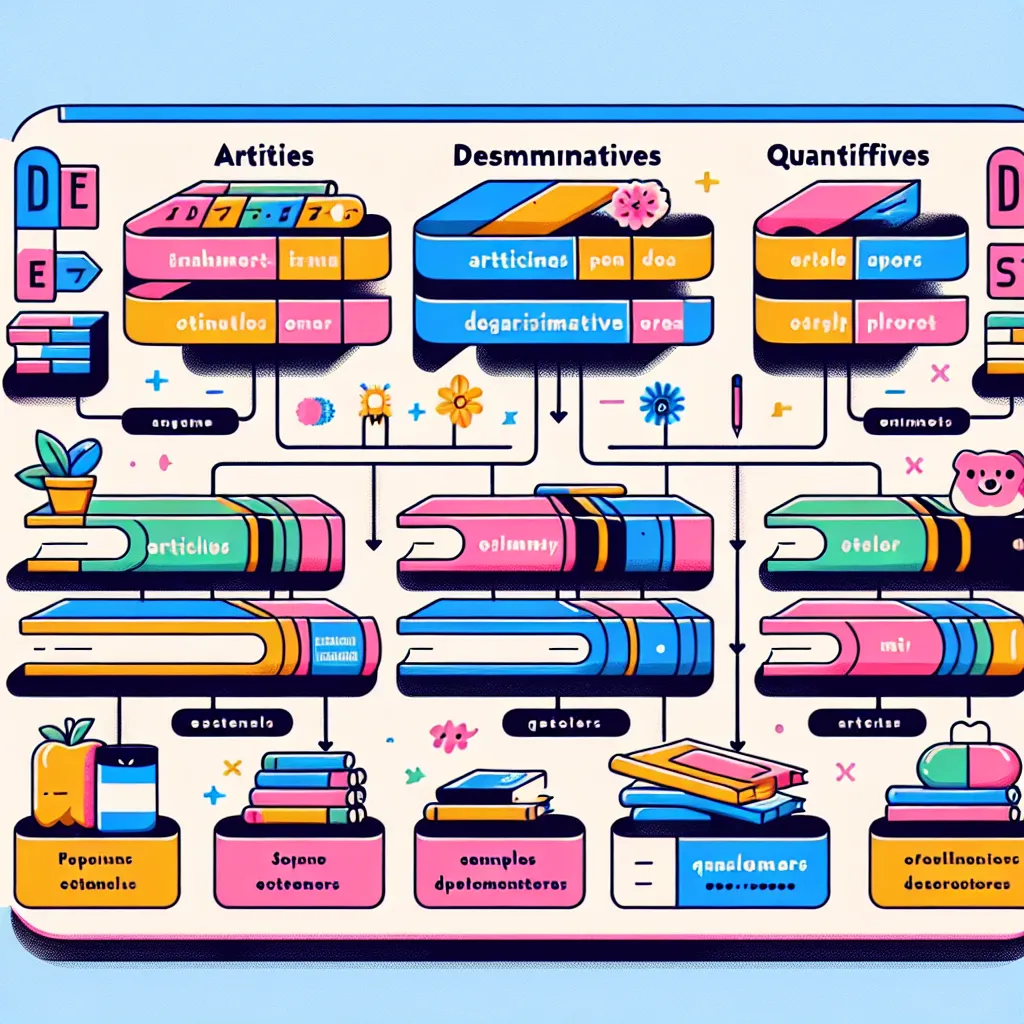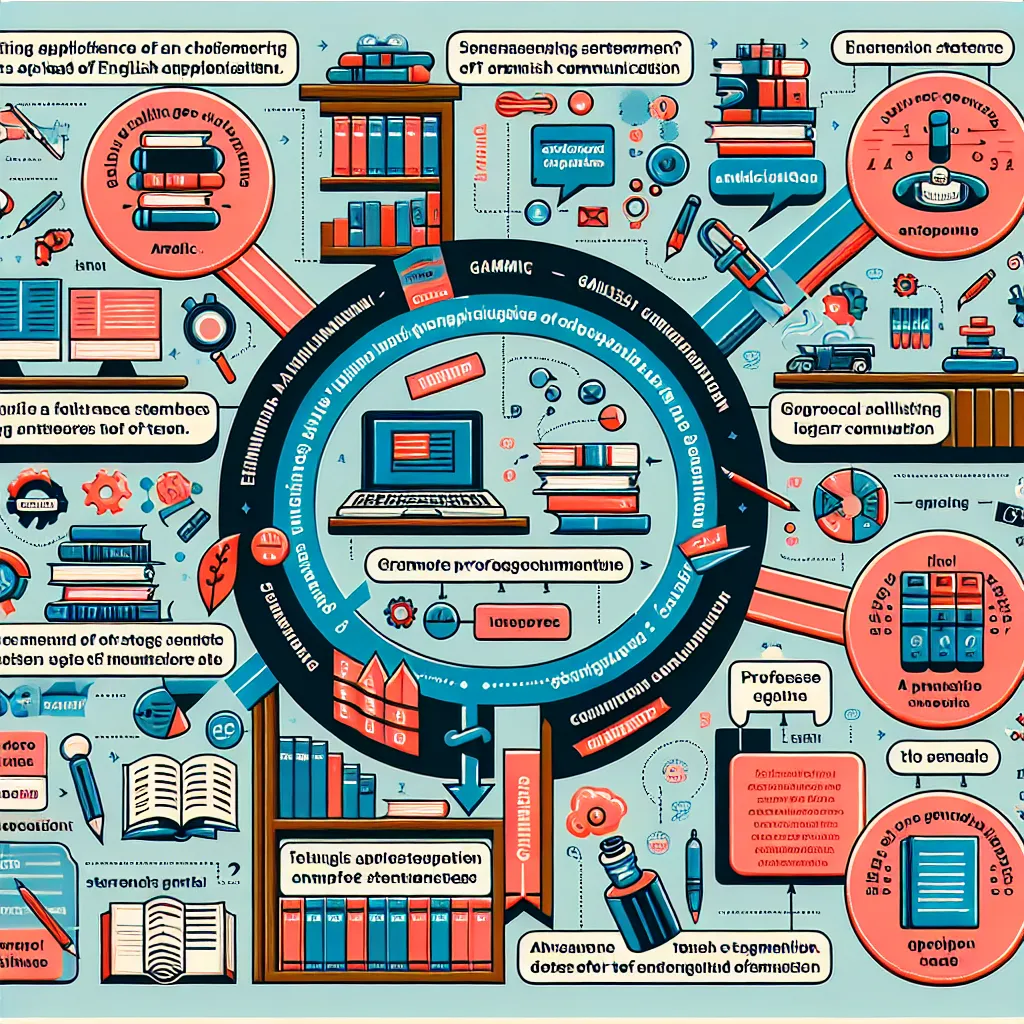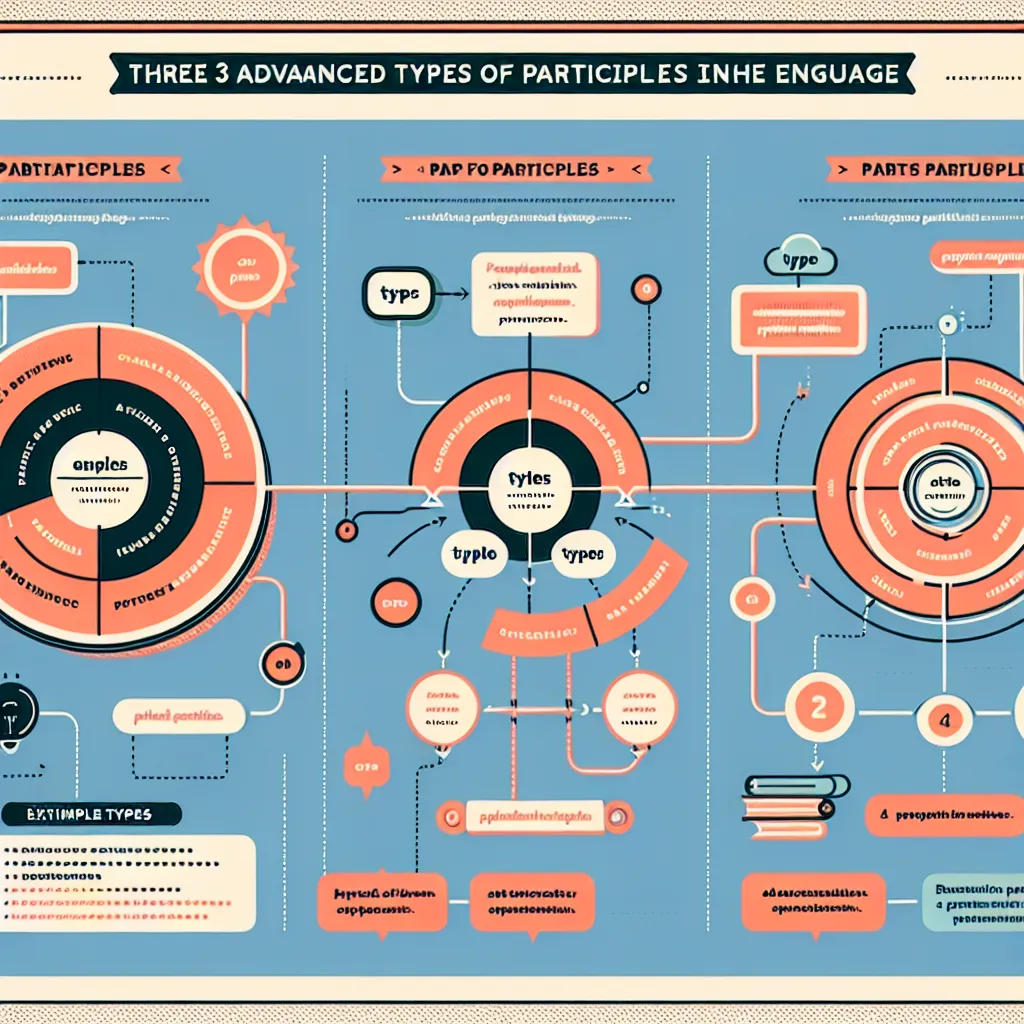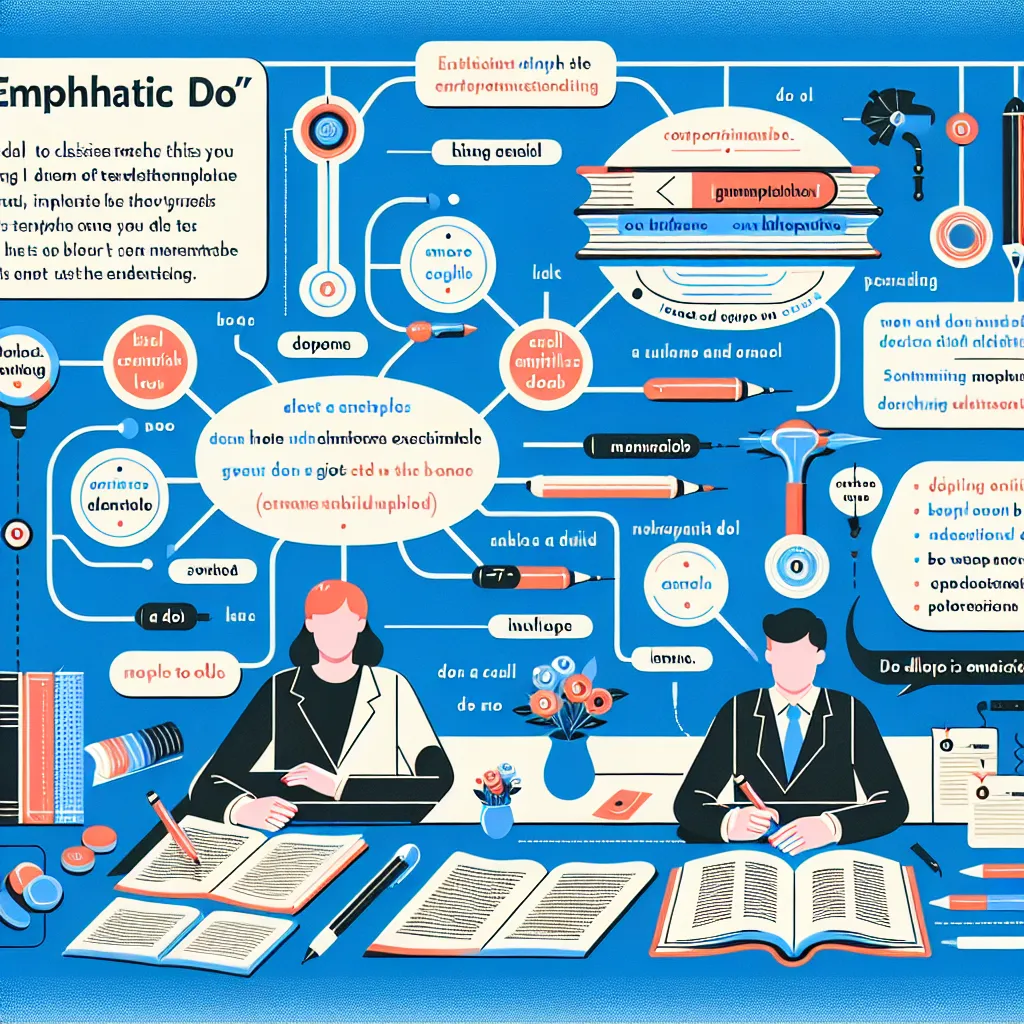English determiners play a crucial role in conveying precise meaning and ensuring grammatical accuracy in both spoken and written communication. Whether you’re a beginner or an advanced learner, mastering determiners is essential for achieving fluency and expressing yourself clearly. In this comprehensive guide, we’ll explore effective strategies and techniques to help you master English determiners.
Understanding English Determiners
Determiners are words that come before nouns to provide context and specificity. They include articles (a, an, the), demonstratives (this, that, these, those), possessives (my, your, his, her, etc.), and quantifiers (some, many, few, etc.). Mastering these elements is crucial for accurate and natural English expression.
 English Determiners Chart
English Determiners Chart
The Importance of Determiners in English
Determiners are essential for:
- Specifying quantities
- Indicating possession
- Distinguishing between general and specific references
- Enhancing clarity in communication
Understanding and using determiners correctly can significantly improve your English proficiency and help you avoid common mistakes that non-native speakers often make.
Strategies for Mastering English Determiners
1. Start with Articles
Articles (a, an, the) are the most common determiners and often the most challenging for learners. To master them:
- Practice identifying countable and uncountable nouns
- Learn the rules for using ‘a’ vs. ‘an’
- Understand the difference between specific (the) and general references (a/an or no article)
For a deep dive into mastering articles, check out our comprehensive guide on how to master English articles.
2. Focus on Context and Meaning
Determiners often depend on the context of the sentence. Practice analyzing sentences to understand why specific determiners are used. For example:
- “I bought a book” vs. “I bought the book”
- “These apples are sweet” vs. “Those apples are sour”
Understanding the context helps you choose the appropriate determiner naturally.
3. Learn Quantifiers Thoroughly
Quantifiers like “some,” “many,” “few,” and “several” can be tricky. To master them:
- Study the differences between countable and uncountable quantifiers
- Practice using quantifiers in various contexts
- Pay attention to positive, negative, and question forms
For more advanced usage of quantifiers, explore our article on how to use advanced quantifiers.
4. Practice with Authentic Materials
Expose yourself to authentic English content such as:
- News articles
- Podcasts
- Movies and TV shows
- English literature
Pay close attention to how native speakers use determiners in different contexts.
5. Use Mnemonic Devices
Create memory aids to remember tricky determiner rules. For example:
- “A” is for “Any” singular countable noun
- “The” is for “That specific” noun
6. Engage in Regular Writing Practice
Writing regularly helps reinforce proper determiner usage. Try:
- Keeping a daily journal in English
- Participating in online English writing forums
- Writing short stories or essays
Ask native speakers or teachers to review your writing and provide feedback on your determiner usage.
Common Mistakes to Avoid
When learning English determiners, be aware of these common pitfalls:
- Overusing “the” with general nouns
- Forgetting to use articles with singular countable nouns
- Using “a” instead of “an” before words starting with vowel sounds
- Confusing demonstratives (this/that, these/those)
To improve your understanding of these nuances, read our article on perfecting the use of determiners.
Advanced Determiner Usage
Once you’ve mastered the basics, focus on more advanced aspects:
1. Determiners in Formal Writing
Learn how to use determiners effectively in academic and professional contexts. Our guide on how to use advanced determiners in formal writing provides valuable insights.
2. Determiners with Uncountable Nouns
Practice using determiners with abstract or uncountable nouns, which can be challenging even for advanced learners.
3. Determiners in Idiomatic Expressions
Study how determiners are used (or omitted) in common English idioms and fixed expressions.
Practical Exercises for Mastering Determiners
To reinforce your learning, try these exercises:
- Gap-fill exercises: Complete sentences by choosing the correct determiner
- Error correction: Identify and correct mistakes in determiner usage in given texts
- Translation practice: Translate sentences from your native language to English, focusing on determiner usage
- Storytelling: Create short stories using a variety of determiners accurately
 English Learner Practicing
English Learner Practicing
Next Steps
After working through this guide and practicing regularly, you should see significant improvement in your use of English determiners. To further enhance your skills:
- Take online quizzes and tests focused on determiner usage
- Join English language exchange groups to practice with native speakers
- Consider enrolling in an advanced English grammar course
- Read extensively in English, paying close attention to determiner usage
For additional tips on improving your use of articles specifically, visit our resource on how to improve your use of English articles.
Conclusion
Mastering English determiners is a journey that requires patience, practice, and persistence. By understanding the rules, practicing regularly with authentic materials, and being mindful of common mistakes, you can significantly improve your English proficiency. Remember, language learning is a gradual process, so celebrate your progress along the way. Keep practicing, stay curious, and soon you’ll find yourself using determiners with confidence and accuracy.
We encourage you to share your experiences, questions, or tips for mastering English determiners in the comments below. Happy learning!




